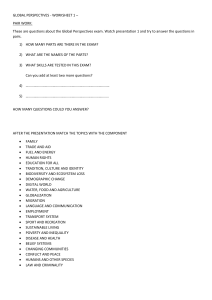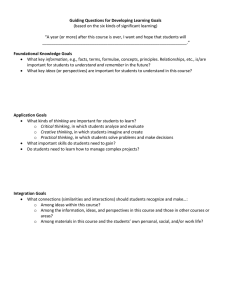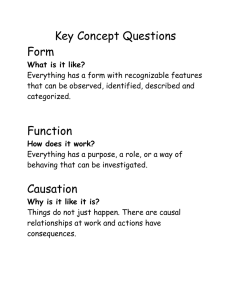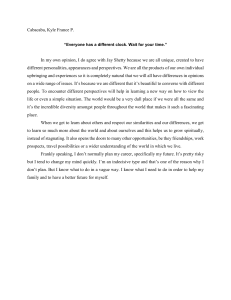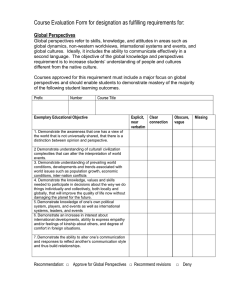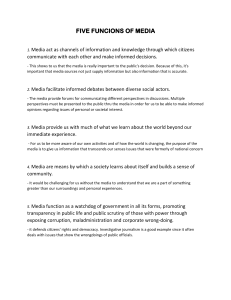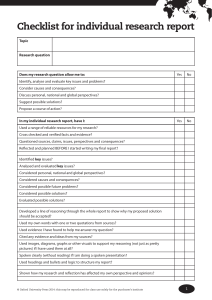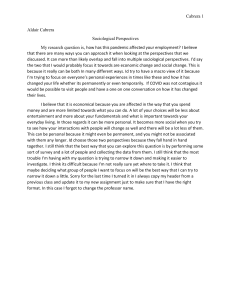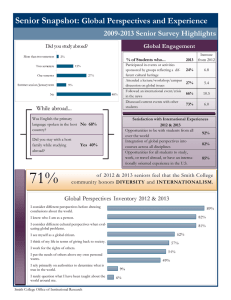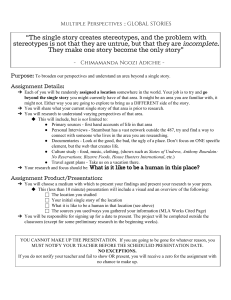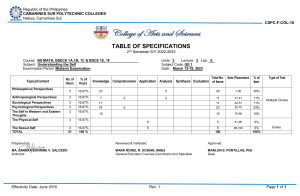Perspectives on Industrial Policy Noriyuki Yanagawa Associate Professor, Graduate School of
advertisement
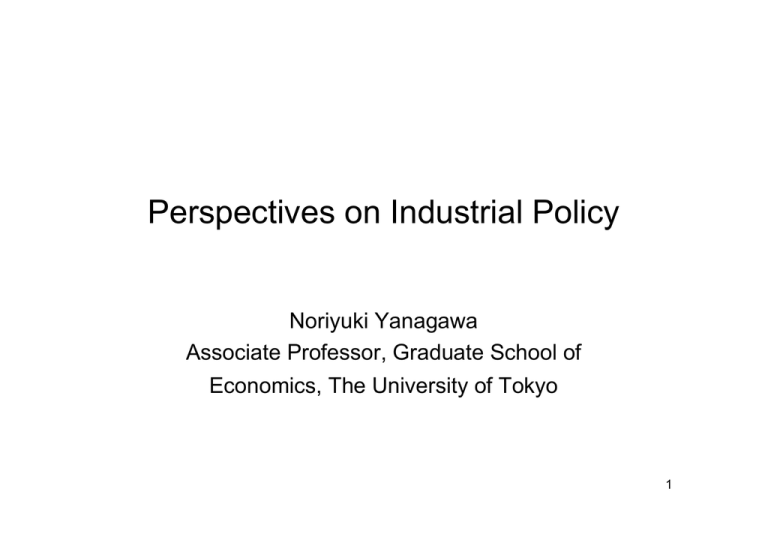
Perspectives on Industrial Policy Noriyuki Yanagawa Associate Professor, Graduate School of Economics, The University of Tokyo 1 The necessity of government intervention • Opinions in Japan tend to lean towards one extreme or the other. “It should be left to the market.” “It is the government’s responsibility.” • Appropriate level of government intervention • Need to establish appropriate criteria • ⇒ a new perspective on industrial policy 2 Situations in which government intervention is required • Put simply, “when the market fails” ¾ “Coordination failure” among stakeholders: Government intervention is particularly important ¾ Temporary market breakdown: Response to financial crises, etc. ¾ Macro policies: if not due to the above reasons, the effectiveness should be limited ¾ External strategy: those could cause problems for the entire world 3 Perspectives on industrial policy • Use of private sector mechanisms (including informal mechanisms) • Policies in response to the coordination failure among private sectors are likely to become increasingly important in the future • Key perspectives (examples): – Support for standardization and format competitions – Solutions in the event of the coordination failure among government agencies 4 Perspectives on industrial policy • It is important to derive useful “ideas” to prevent the coordination failure. • Providing funding has a secondary aspect. • It is important to encourage private sector funding wherever possible. • It is also necessary to minimize political risks from the government’s standpoint. 5 Points for industrial policy • Not to provide financial supports easily. • When providing financial supports, the final decisions should not be made by a government official, that should be made by a person who is not lifetime employee and who has the responsibility for the outcome. • Japanese has a tendency to feel government interventions are “comfortable,” It is therefore important to address the limit of intervention. 6
